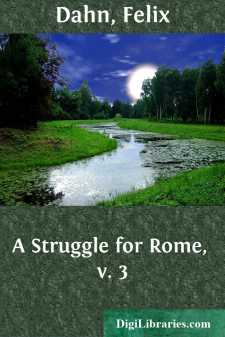Categories
- Antiques & Collectibles 13
- Architecture 36
- Art 48
- Bibles 22
- Biography & Autobiography 813
- Body, Mind & Spirit 142
- Business & Economics 28
- Children's Books 17
- Children's Fiction 14
- Computers 4
- Cooking 94
- Crafts & Hobbies 4
- Drama 346
- Education 46
- Family & Relationships 57
- Fiction 11829
- Games 19
- Gardening 17
- Health & Fitness 34
- History 1377
- House & Home 1
- Humor 147
- Juvenile Fiction 1873
- Juvenile Nonfiction 202
- Language Arts & Disciplines 88
- Law 16
- Literary Collections 686
- Literary Criticism 179
- Mathematics 13
- Medical 41
- Music 40
- Nature 179
- Non-Classifiable 1768
- Performing Arts 7
- Periodicals 1453
- Philosophy 64
- Photography 2
- Poetry 896
- Political Science 203
- Psychology 42
- Reference 154
- Religion 513
- Science 126
- Self-Help 84
- Social Science 81
- Sports & Recreation 34
- Study Aids 3
- Technology & Engineering 59
- Transportation 23
- Travel 463
- True Crime 29
A Captive of the Roman Eagles
by: Felix Dahn
Description:
Excerpt
CHAPTER I.
Whoever has been at Friedrichshafen on beautiful Lake Constance, on a clear August day, and watched the sun setting in splendor behind the tops of the beeches of Manzell; whoever has seen the waves of the lake and the snow-capped peaks of the Alps from Sentis to the Allgau Mountains glow in the crimson light, while the notes of the Ave Maria float softly over forest, meadow, and water, will treasure the memory of the peaceful scene throughout his whole life. To this region the story of little Bissula leads us.
But in that period--the year 378--the whole northern shore of the "Venetus Lacus" (Lake Constance) looked somewhat desolate, and often by no means peaceful. The lowlands were covered with primeval forests and fens--only here and there a few scattered settlements appeared on patches of parched tilled land.
At that time the lake covered a much more extensive tract of country than now, and a still larger space was occupied by a marshy territory between the water and the meadow, which being for the greater portion of the year a mere swamp afforded at the same time refuge and food to flocks of wild swans, herons, and countless smaller water-fowl.
This region had already been a considerable time in the possession of the Alemanni; but on the southern shore of the lake Rome still maintained her supremacy. This was with the special object of controlling the important roads leading from Gaul by way of Augst (Augusta Rauracorum) to Basle, Windisch (Vindonissa) to Arbon (Arbor Felix), Bregenz (Brigantium), and thence farther eastward, thus preserving the connection between the Western and Eastern portions of the Empire, and facilitating the movements of the troops. The men were sometimes forced to hasten from the Rhine to the Danube to meet the Goths in the East, and anon from the Danube to the Rhine to contend with the Franks on the lower, or the Alemanni on the upper portion of the stream.
This year also such assistance seemed necessary--this time in the eastern provinces, where the Gothic tribes, especially the Visigoths, fleeing before the Huns, had found refuge on Roman territory, but, driven to desperation by the ill-treatment of the Roman governor, had risen in arms.
True, Valens, the Emperor of the Eastern Empire, hoped to cope successfully with them alone; he would have been reluctant to share the fame of victory with his young nephew and fellow-ruler Gratianus, lord of the Western portion. Yet, nevertheless, he had been compelled to ask the latter to hold himself in readiness to come to his uncle's assistance with his Gallic legions in the territory bordering on the Danube.
Gratianus, however, thought that he could not leave Gaul and the Rhine until he had first punished the Alemanni for their recent incursions across the frontier, and--at least for a while--deterred them from making new inroads. At the same time he desired, in case the summons for help should arrive, to have traversed a portion of the long distance and thus be able to give his uncle aid more speedily....








